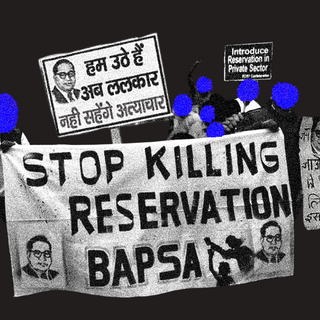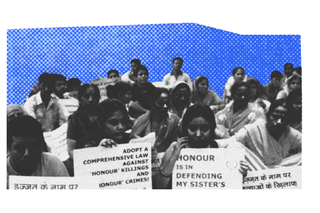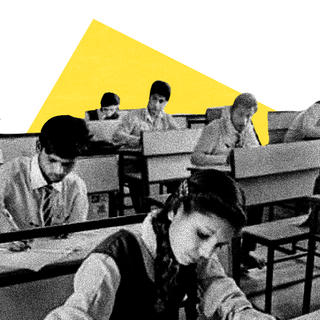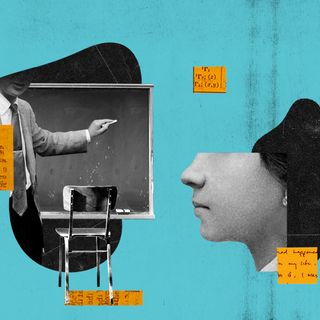
Anti‑Caste Activists Propose Bill to End ‘Honor Killings’
Presently, only the State of Rajasthan has a law against Honor Killings. The activists have proposed a nationwide legislation.

A coalition of anti-caste activists and organizations under the Dalit Human Rights Defenders Network (DHDRN) proposed a draft Bill to criminalize honor killings — the act of killing family members or their spouses for “committing the crime of” intercaste or interfaith marriage to “preserve community honor” — The News Minute reported on Wednesday. The Bill is intended to nudge the legislative to institute nationwide protections against the crime, and act as a guiding framework for the same. This is in stark contrast with the increasing prevalence of “love-jihad” narratives, as multiple state governments promise to institute legislations that make it increasingly difficult for Hindu women to marry Muslim men.
The draft Freedom of Marriage and Association and Prohibition of Crimes in the Name of Honour Act 2022, framed in consultation with the Centre for Law and Policy Research, seeks to “provide justice, compensation and rehabilitation in crimes committed in the name of honour vis a vis caste, faith, age, gender, sexual orientation, language, class, race, status, and tradition.”
Honor killing is a serious issue that grips India. In a statement in the Parliament last year, the Minister of State for Home Affairs declared that between 2017 and 2019, the country saw 145 cases of honor killing registered across the country. The National Crime Records Bureau’s 2020 report mentions that 25 cases of honor killing were registered in the country that year. In May this year, a Dalit man in Hyderabad was beaten to death by his upper-caste Muslim wife’s brothers in an incident recorded on camera. It is important here to remember that official figures, especially on honor crimes, remain grossly underreported and actual figures may reflect an even higher incidence of such crimes.
The Bill’s provisions offer a wider understanding of honor killing and recognizes the various ways in which communities victimize intercaste and interfaith couples. At the outset, it emphasizes the right of individuals to choose their partners irrespective of their religion, caste, tribe, or clan; and their right to not seek the consent of their families and communities for the same. It also directs the police to not take any action against any couple based on complaints by their families, religious communities, caste communities, tribes, or clans.
Activist A Kathir, who heads DHRDN, explained to TheNewsMinute the significance of the Bill and how patriarchy centers a community’s honor on its women. “A marriage ought to be a woman’s choice. But here, it goes beyond that to become a family’s choice, dictated by caste, religion and patriarchy…The number of women who die by suicide because they are not able to be with a partner of their choice is also distressingly high in the country.”
It is significant here to note that the Bill identifies even forms of companionship other than marriage as valid, and asks the state and police to provide protection to unmarried couples as well. Further, the Bill asks that the police also should extend protection to couples of individuals coming from gender or sexual minorities. It recognizes the many forms, other than murder, in which honor crimes against interfaith and intercaste couples manifest in society, including intimidations and threats, physical and sexual violence, or ostracization of such couples from their residences. Among its recommendations are that honor killings be designated non-bailable offences; that the burden of proof of innocence is on the accused; that the state institute of fast-track courts to conduct trials; and that victims are provided ample compensation.
The draft Bill thus understands and identifies honor killing as a distinct, specific form of human rights violation, that is more than just the violent forms in which it manifests. The United Nations Office on Drugs and Crime in a 2010 Handbook on Crimes Against Women recognizes honor crimes as “one of history’s oldest forms of gender-based violence. It assumes that a woman’s behavior casts a reflection on the family and the community… a father, brother, or cousin will publicly take pride in a murder committed to preserving the ‘honor’ of a family. In some such cases, local justice officials may side with the family and take no formal action to prevent similar deaths.”
Related on The Swaddle:
Why India Needs a Separate Law for Honor Killings
Despite its seriousness, there has been little action in this regard by governments. The Swaddle in 2020 had reported how the Union Government cites underreported NCRB statistics to justify that there is no need for special legislation to deal with honor crimes, and that existing sections of the Indian Penal Code are enough to deal with this specific menace.
However, others point out a deeper reason behind government inaction. “Social groups like the Khap Panchayats have considerable sway on political outcomes and that’s what politicians are afraid of upsetting if they back such a Bill. The groups that have the most to gain from the perpetuation of the caste system are the ones who hold the most power in the existing system,” Kathir had explained to The Swaddle. The Draft Bill framed by the DHRDN, then, takes into account the special role that khap panchayats play in carrying out honor crimes, and calls for legal action against such bodies.
In 2019, Rajasthan became the first (and so far, only) Indian state to introduce a law against honor killing. The The Rajasthan Prohibition of Interference with the Freedom of Matrimonial Alliances in the Name of Honour and Tradition Bill, 2019, recognizes honor crimes as a distinct category, and prescribes death penalty for those found guilty of Honor Killing. However, there are some loopholes in the Rajasthan legislation. In a consultation organized by CLPR to discuss the present draft bill, Kavita Srivastava, a member of People’s Union of Civil Liberties, critiqued the existing Rajasthan bill “for excluding the hierarchies present within Scheduled Caste communities, Muslims and for lacking better definitions and penalties for honor-based crimes.” Further, legal researcher Ishwarya S pointed out in the same event how “capital punishment is disproportionately targeted at the minorities”, hence it should be avoided as much as possible.
It is important here to note that under present circumstances, the draft Bill and its goals face multiple other challenges, not just from society but from the state itself. Beyond the jingoism around love jihad, there are also challenges posed by the state’s own attempts at facilitating interfaith and intercaste marriages. Under the Special Marriage Act, 1954, which grants legal recognition to intercaste and interfaith marriages, the state requires both partners to file a notice with their marriage registrar 30 days prior to their wedding.
This notice is posted publicly in the office of the registrar, making their private details open to public scrutiny, endangering interfaith couples to harassment and violence by their religious groups. Last month, the Supreme Court rejected a petition that sought to discontinue this notice period. As R K Ayodaya, a retired district court judge, noted during the discussion on the draft Bill, “society and law influence each other”, at times standing in the way of meaningful implementation of even well-intentioned laws such as the Special Marriage Act.
The draft Bill, if acted upon by the government, offers both a promise as well as a concrete framework for providing protection to those who choose to love outside the boundaries set by their communities. It offers a progressive understanding of love and companionship, while also proposing stringent punishment to those who challenge it.
Amlan Sarkar is a staff writer at TheSwaddle. He writes about the intersection between pop culture and politics. You can reach him on Instagram @amlansarkr.
Related


NCERT Issues Guidelines to Schools to Help Address Students’ Mental Health Problems
